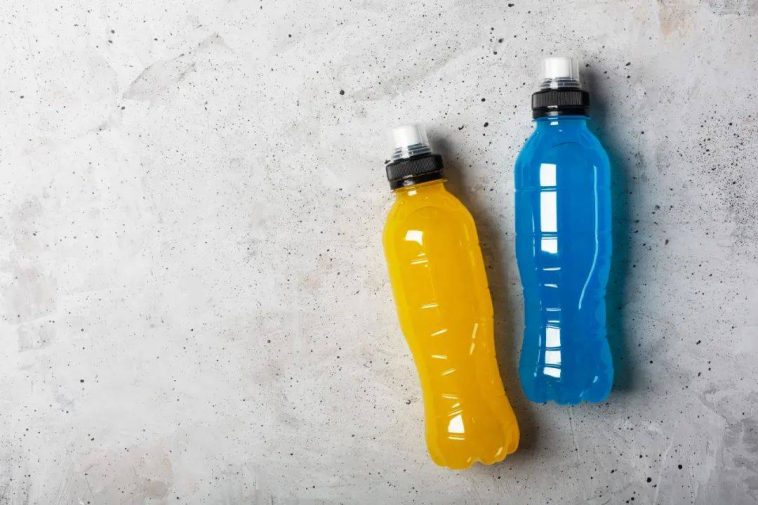It is believed that many people will regard functional beverages as “artificial tools for staying up late”, which can not only quench their thirst, but also refresh their minds. There are also many people who are obsessed with the idea that energy drinks are healthier and more nutritious than carbonated drinks.
actually not.
According to the “British Medical Journal”, a 21-year-old young man drank 4 cans of energy drinks a day for 2 years. The result was shortness of breath and difficulty breathing due to exertion. He was diagnosed with heart failure and renal failure and was admitted to the ICU.
The New York Times also reported that in recent years, there have been several cases in the United States of consumers who died or were admitted to the hospital after drinking energy drinks.
Are energy drinks still available?
What kind of beverages are energy drinks?
Functional beverages refer to those beverages that can adjust the function of the human body to a certain extent by adjusting the composition and content ratio of various nutrients in the beverage, not for the purpose of treating diseases.
At present, functional drinks in a broad sense mainly include three categories: sports drinks, energy drinks and other drinks with health effects.
The main function of general energy drinks is to fight fatigue and replenish energy.

Now, functional drinks are more and more popular among young people, and they have gradually become a big consumption in this field.
According to the definition of energy drinks by the International Society of Sports Nutrition:
Energy drinks refer to ingredients that, in addition to general nutrients such as water, carbohydrates (such as glucose, sucrose, maltodextrin, etc.), vitamins, minerals, etc., also include other special substances (common ones are caffeine, taurine, amino acids, citronella, etc.). A drink of lana, glucuronolactone, inositol, niacin, panthenol, ginseng, ginkgo extract, etc.).
Why does drinking energy drinks cause discomfort?
Searching the Internet, you will find a lot of claims about energy drinks: “Energy drinks are closely related to cardiovascular function”, “Energy drinks can make the heart beat faster and arrhythmia”, “Drinking energy drinks is life-threatening” and so on.
Although there are various theories, they are all insistent and inconclusive.
Some studies have found that functional drinks contain taurine and caffeine, which are the main effective ingredients to improve people’s attention and response.

It’s true that a moderate amount of caffeine each day can be refreshing and invigorating. According to the recommended intake, the safe intake of caffeine should not exceed 300 mg per day.
However, if you consume too much, it will easily lead to caffeine poisoning, causing insomnia, headache, irritability, irritability, gastrointestinal discomfort, heart palpitations and muscle tremors and other uncomfortable symptoms, and even life-threatening in severe cases.
We usually drink a can of energy drinks, which generally does not reach the amount that causes caffeine poisoning, but if we drink it every day, or drink too much at one time, it may cause uncomfortable symptoms.
In addition, it cannot be said that caffeine is the only reason for the threat of energy drinks. In addition to caffeine, there are many other ingredients in general energy drinks. According to reports, there is not enough research on the safety of these ingredients.
Can you drink energy drinks?
At present, although there are some negative cases, most of them are caused by excessive consumption of energy drinks.
For a healthy adult, you should not drink energy drinks often, and drink at most one bottle per day during special periods. If you feel unwell, you should seek medical attention as soon as possible to avoid irreversible consequences.
In addition, children and adolescents under the age of 16 are in the stage of growth and development. If they drink functional beverages and supplement these ingredients excessively, they will cause the children’s body adjustment disorder.
Similarly, pregnant women, lactating women and people who are sensitive to caffeine should also try not to drink it.
In some entertainment venues, some people use alcohol and energy drinks to mix cocktails, but this practice is not worth promoting. Alcohol also has a stimulant effect. Drinking it into the body together with energy drinks will make it easier to cause discomfort.

Moreover, such practices tend to have a better taste and make people drink more.
Therefore, although everyone’s physique and physical condition have different degrees of sensitivity to functional drinks, if it is not really necessary, it is better to drink as little or no functional drinks as possible.
What other beverages are bad for the heart?
In addition to energy drinks, excessive consumption of sugar-sweetened and caffeinated beverages is also bad for the heart.
In 2019, a journal published an observational study of more than 100,000 people over nearly 30 years that reconfirmed the dangers of sugar-sweetened beverages. The more you drink, the higher the mortality rate: compared to less than 1 per month. Those who drank more than 2 standard cups a day had a 21% increased risk of death.
Reducing the intake of sweetened beverages could potentially save tens of thousands of lives each year.
Excessive consumption of beverages that are not good for the heart and other organs




GIPHY App Key not set. Please check settings